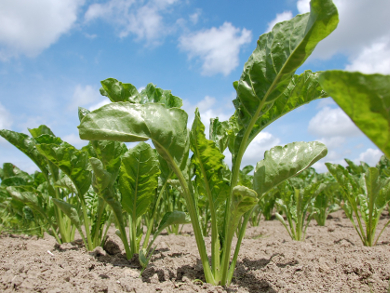Emulsifiers are used in many food products such as dairy products or sauces. They keep water- and oil-based ingredients from separating and improve the texture of the products. Natural emulsifiers, e.g., polysaccharides or phospholipids, are preferred for the use in foods. However, polysaccharides have a low surface activity and need to be added in large amounts, and phospholipids can create emulsions that tend to separate during storage. Saponins are naturally occurring compounds that can act as an alternative emulsifier. Quillaja or soapbark tree extract, for example, is rich in saponins and is often used in the food industry.
Jochen Weiss, University of Hohenheim, Stuttgart, Germany, and colleagues have evaluated the properties of sugar beet extract, which also contains saponins, as a natural emulsifier for food applications and compared them to Quillaja extract. The team ground fresh sugar beets and extracted them with methanol. The methanol was removed from the resulting solution and the extract was freeze-dried. The researchers then tested the extract’s emulsifying properties by dissolving it in a sodium phosphate buffer solution and blending the aqueous phase with oil. The particle size of the emulsions was measured by light scattering experiments.
The sugar beet extract showed a high surface activity, reduced the surface tension between oil and water by up to 38 %, and created emulsions with particle sizes as low as 1.3 μm. While the droplets were bigger than in emulsions using Quillaja extract, the researchers conclude that sugar beet extract is effective at forming emulsions and could be a promising alternative for the food, beverage, and pharmaceutical industries.
- Sugar Beet Extract (Beta vulgaris L.) as a New Natural Emulsifier: Emulsion Formation,
Theo Ralla, Hanna Salminen, Matthias Edelmann, Corinna Dawid, Thomas Hofmann, Jochen Weiss,
J. Agric. Food Chem. 2017.
DOI: 10.1021/acs.jafc.7b00441




